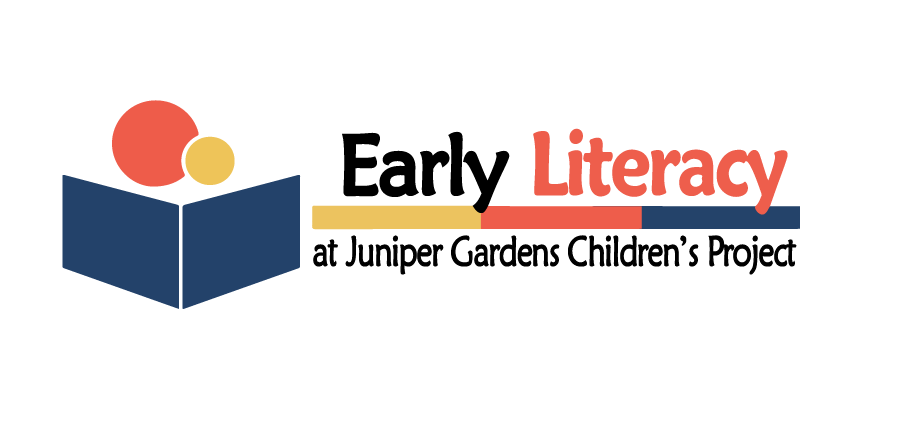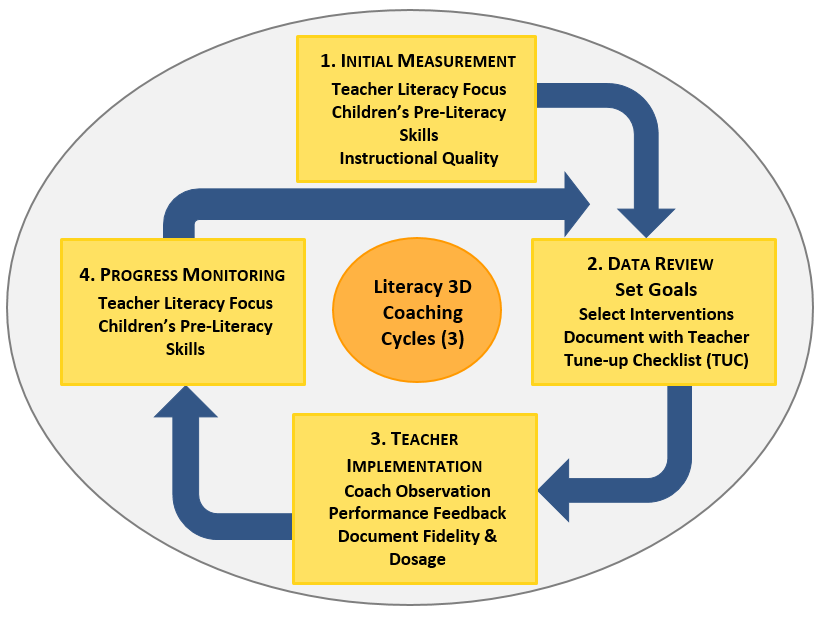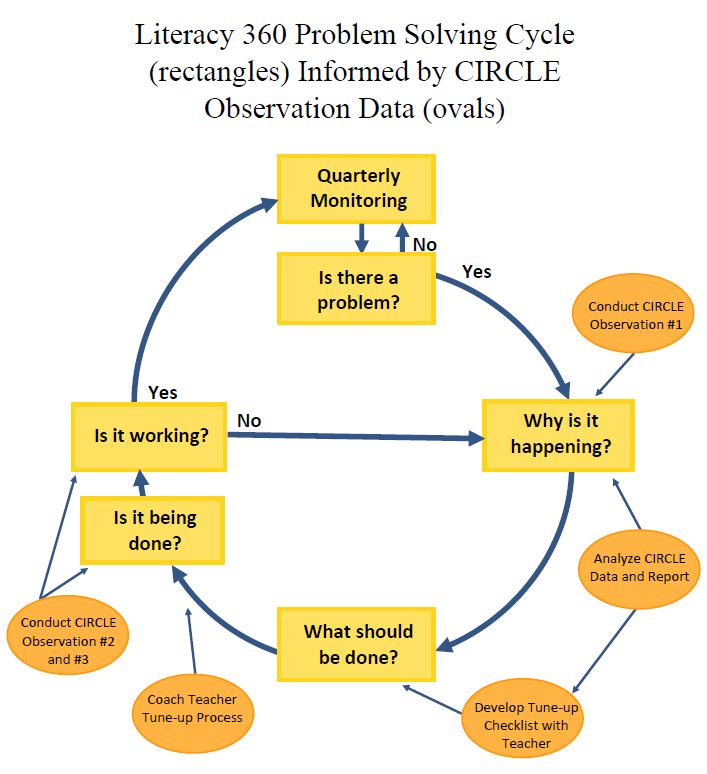Intervention decisions in early childhood programs and services are increasingly based on individual children’s performance on measures of desired child outcomes. Data Driven Decision Making (DDDM), is a routine process by which practitioners collect, analyze, reflect, and decide what action, if any, should be taken. An important distinction to make about DDDM is that it is focused on the needs of an individual child and their response to the experiences they are receiving. DDDM is not measurement for purposes of program accountability, nor for early childhood special education edibility, even though the data may be used in combination with other data to inform these two different issues.
DDDM is focused on improving the desired learning outcomes of children by measuring their growth given their experiences (e.g., curriculum, intervention, etc.) for the purpose of monitoring progress and adjusting a child’s educational experiences as needed. DDDM in Literacy 3D and 360 use similar steps in the process but vary in the types of child and teacher data collected.


